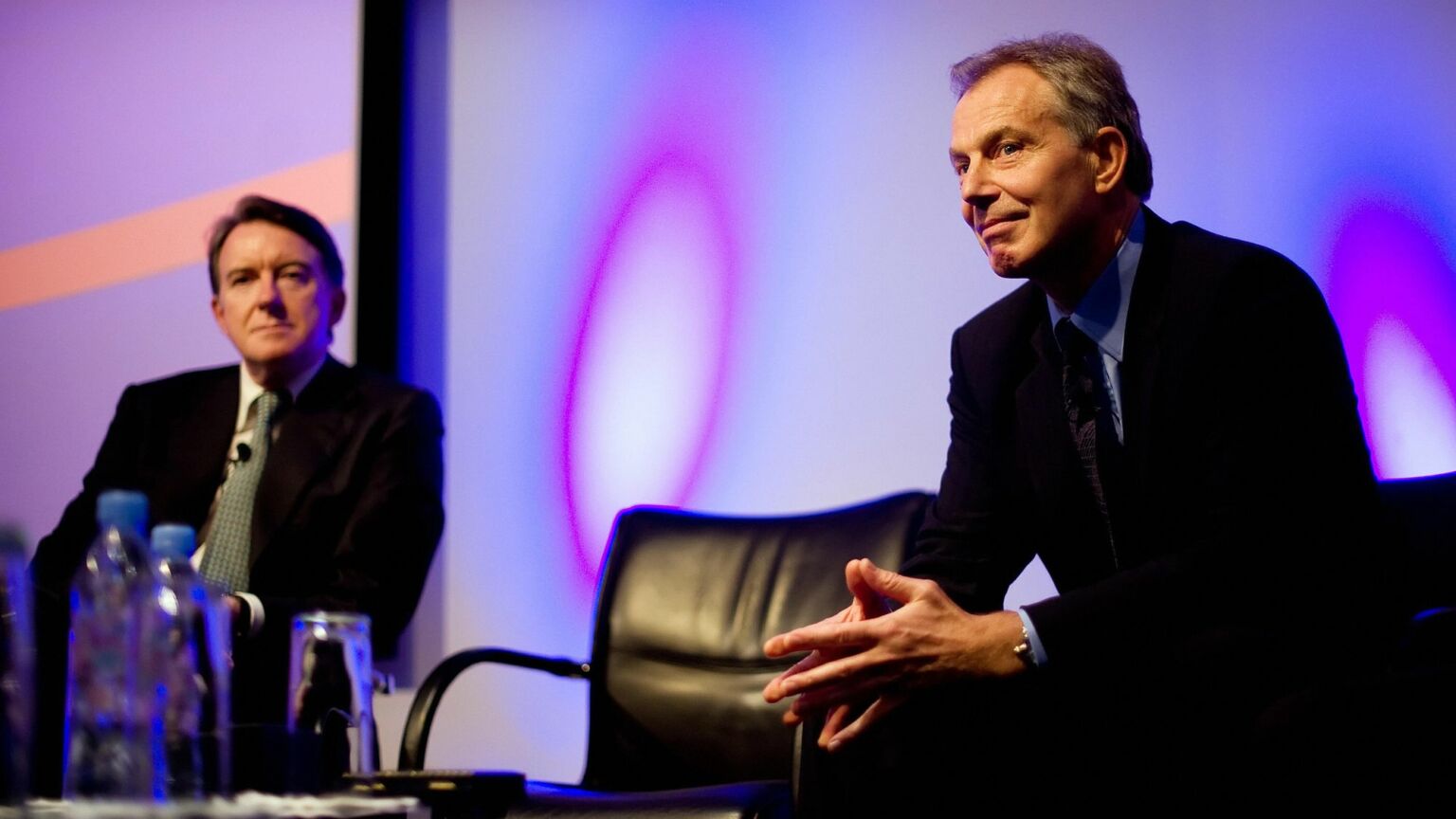Starmer’s ‘sleaze’ has nothing on New Labour
The commentariat seems to have completely forgotten about the scandals of the Blair years.

Want to read spiked ad-free? Become a spiked supporter.
The sleazy whiff coming off the new Labour government is far less shocking than the commentariat’s reaction to it all. Centrist pundits have responded with borderline incredulity to the reports of alleged cronyism, power grabs by the unelected Sue Gray and ministers’ embrace of seemingly every free ticket and trouser suit going.
You would expect all this from the Tories, they argue, but not the Labour Party. Keir Starmer and Co are meant to be ‘the good guys‘, the adults back in the room. Labourites are said to be better, more moral people than the rotten, nasty and corrupt Tories. They simply shouldn’t be behaving like this, supposedly.
The commentariat’s apparent surprise at the recent scandals would be easier to take seriously if it wasn’t based on such wilful historical amnesia. Indeed, were those now tweeting their shock and disappointment asleep during the New Labour years? Indeed, Tony Blair’s government, so often cited as a model for Keir Starmer’s, made the new occupant of No10 look like a rank amateur in the cronyism and dodgy-dealing stakes.
Almost as soon as Tony Blair beat John Major’s exhausted Tories in 1997, partially on the back of posing as ‘anti-sleaze’, Labour found itself embroiled in its own sleaze scandal. Formula One chief Bernie Ecclestone had given Labour a £1million donation and, by coincidence, Blair’s government then exempted Formula One from the ban on tobacco advertising it was then implementing.
The New Labour years were awash with countless questions over donations. There was a £100,000 donation to Labour from press and porn baron Richard Desmond in 2002. It later emerged that it was made just days after the trade and industry secretary cleared the way for Desmond to buy Express Newspapers. There was also a secretive £600,000 donation from eccentric property developer Richard Abrahams, revealed in 2007, which had to be returned as it was not lawfully declared.
Who could forget ‘Tony’s cronies’, the press’s epithet for those supporters and donors Labour allegedly attempted to reward for their loyalty and cash with peerages? The so-called cash-for-honours scandal even prompted a police investigation. This accompanied Tony Blair’s exit from government in 2007. As an Observer op-ed had it at the time: ‘[Blair] will be seen with John Major as a prime minister whose time in office was punctuated, despoiled and diminished by scandal.’
I haven’t even mentioned the shenanigans of Labour stalwarts Alastair Campbell and Peter Mandelson. As few will need reminding, as Blair’s director of communications, Campbell exerted an awful lot of unaccountable power for none-too-progressive ends. Above all, he was the principal force behind the ‘sexed up’ – ie, fabricated – dossier on Iraq’s military capabilities, which served as a justification for the catastrophic invasion of Iraq in 2003. For all the talk of the Tories’ misbehaviour in office, none played such a leading role in the destruction of an entire nation, the devastating effects of which continue to be felt today.
Then there’s Mandelson, whose entire political career has been dogged by scandal. Appointed trade and industry secretary in 1997, he resigned a year later over a home-buying loan. Having been made secretary of state for Northern Ireland in 1999, Mandelson was forced to resign for a second time in 2001, following accusations he had used his position to influence a passport application. More was to follow. In 2008, The Sunday Times revealed that Mandelson, then Britain’s European commissioner, gave trade concessions worth up to £50million a year to Russia’s then richest man, Oleg Deripaska, after being entertained on his ‘superyacht’.
Mandelson personified so much that was rotten about the New Labour years. Not that the endless scandals put his party off him. After the Deripaska allegations, then prime minister Gordon Brown promptly appointed Mandelson to a cabinet position for the umpteenth time.
For all the talk about the supposedly unprecedented venality of the Johnson / Truss / Sunak years, the relationship between business interests and the British state was arguably never closer than it was under New Labour. In many ways, this was a direct product of Blair’s conscious efforts to outsource state capacity to the private sector, particularly in the shape of so-called private-finance initiatives. This inevitably fuelled cosy relationships between ministers and the corporate world.
All this and more is why Labour’s outrage in recent years over ‘Tory sleaze’ has been more than a little hard to stomach. As has the wilful naivety of those in the left-leaning media, who seem to think Labour couldn’t possibly ever stoop to such lows.
Tim Black is a spiked columnist.
Picture by: Getty.
Who funds spiked? You do
We are funded by you. And in this era of cancel culture and advertiser boycotts, we rely on your donations more than ever. Seventy per cent of our revenue comes from our readers’ donations – the vast majority giving just £5 per month. If you make a regular donation – of £5 a month or £50 a year – you can become a and enjoy:
–Ad-free reading
–Exclusive events
–Access to our comments section
It’s the best way to keep spiked going – and growing. Thank you!











Comments
Want to join the conversation?
Only spiked supporters and patrons, who donate regularly to us, can comment on our articles.